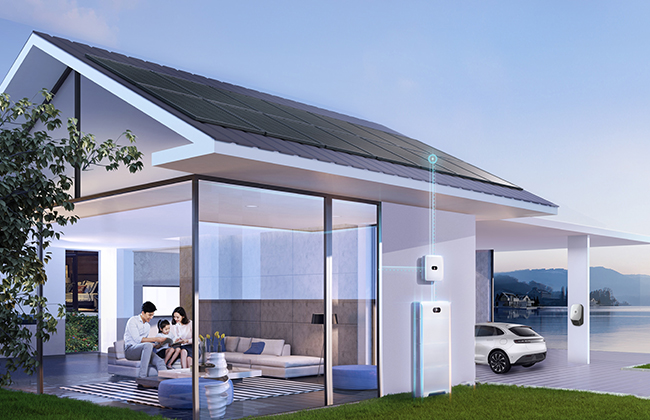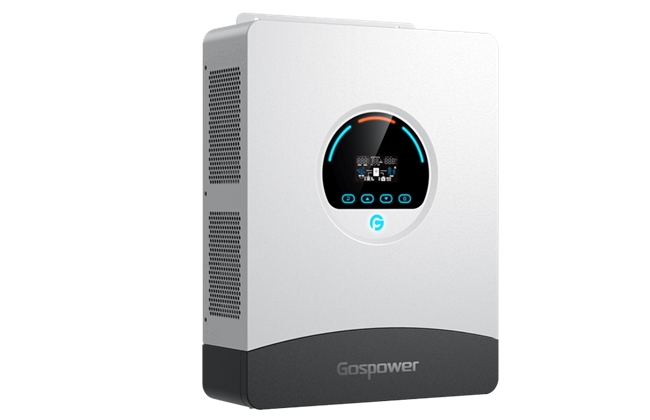What is an Off-Grid Inverter? Understanding the Key to Independent Power Systems
Aug 29, 2024
As renewable energy becomes increasingly popular, more people are turning to solar power for their homes and businesses. However, harnessing solar energy requires specialized equipment to convert it into usable electricity. One critical component of any solar power system is the off-grid inverter. But what exactly is an off-grid inverter, and how does it fit into your energy independence goals? In this blog post, we'll explore the basics of off-grid inverters, their benefits, and why they are essential for those looking to break free from the grid.
What is an Off-Grid Inverter?
An off-grid inverter is a device that converts the direct current (DC) generated by solar panels into alternating current (AC), which is the standard form of electricity used by most household appliances. Unlike grid-tied inverters, off-grid inverters are designed for systems that are not connected to the public electricity grid. This means that an off-grid inverter enables you to produce and use your own electricity independently.
In a typical off-grid solar power system, solar panels generate electricity during the day, which is then stored in batteries. The off-grid inverter takes the stored DC power from the batteries and converts it into AC power when needed. This setup ensures that you have a consistent power supply, even when the sun isn't shining.
Benefits of Using an Off-Grid Solar Inverter
Energy Independence: With an off-grid solar inverter, you can produce and use your own electricity without relying on the utility grid. This is particularly useful in remote areas where grid access is limited or non-existent.
Reliability: Off-grid systems provide a reliable source of power, especially during blackouts or natural disasters when grid power might be unavailable.
Cost Savings: Over time, investing in an off-grid solar inverter and related equipment can save you money by reducing or eliminating your electricity bills.
Sustainability: By using renewable solar energy, you're reducing your carbon footprint and contributing to a more sustainable future.
Types of Off-Grid Inverters
There are different types of off-grid inverters to suit various needs. Below, we explore some common options:
Single Phase Off-Grid Solar Inverter: A single-phase off-grid solar inverter is typically used in residential or small-scale applications. It provides power to homes or small businesses that only require single-phase electricity, which is standard for most household appliances. This type of inverter is cost-effective and easy to install, making it a popular choice for homeowners looking to go off-grid.
Residential Off-Grid Inverter: A residential off-grid inverter is specifically designed for home use. It can handle the energy demands of a typical household, ensuring that you have a reliable power source for all your essential appliances. Residential off-grid inverters are available in various capacities, so you can choose one that fits your energy needs.
How to Choose the Right Off-Grid Inverter for Your Needs
Selecting the right off-grid inverter depends on several factors, including your energy consumption, the size of your solar array, and your budget. Here are a few tips to help you choose the best off-grid inverter:
Determine Your Energy Needs: Calculate your daily energy consumption to ensure that your off-grid inverter can handle your household's power requirements.
Consider the Inverter Capacity: Off-grid inverters come in different sizes and capacities. Make sure to choose one that matches your solar panel array and battery storage capacity.
Look for Reliable Brands: Invest in a high-quality inverter from a reputable brand to ensure long-term performance and reliability.
Factor in Future Expansion: If you plan to expand your solar power system in the future, consider an inverter with scalability options.
An off-grid inverter is a vital component of any off-grid solar power system, providing energy independence and reliable power for your home or business. Whether you're considering a single-phase off-grid solar inverter for a smaller setup or a residential off-grid inverter for your entire household, choosing the right inverter is crucial for maximizing the benefits of your solar power system. Gospower is a leading global manufacturer of off-grid inverter products, we supply various off-grid inverter for sale, by understanding your energy needs and selecting a high-quality inver in here.



